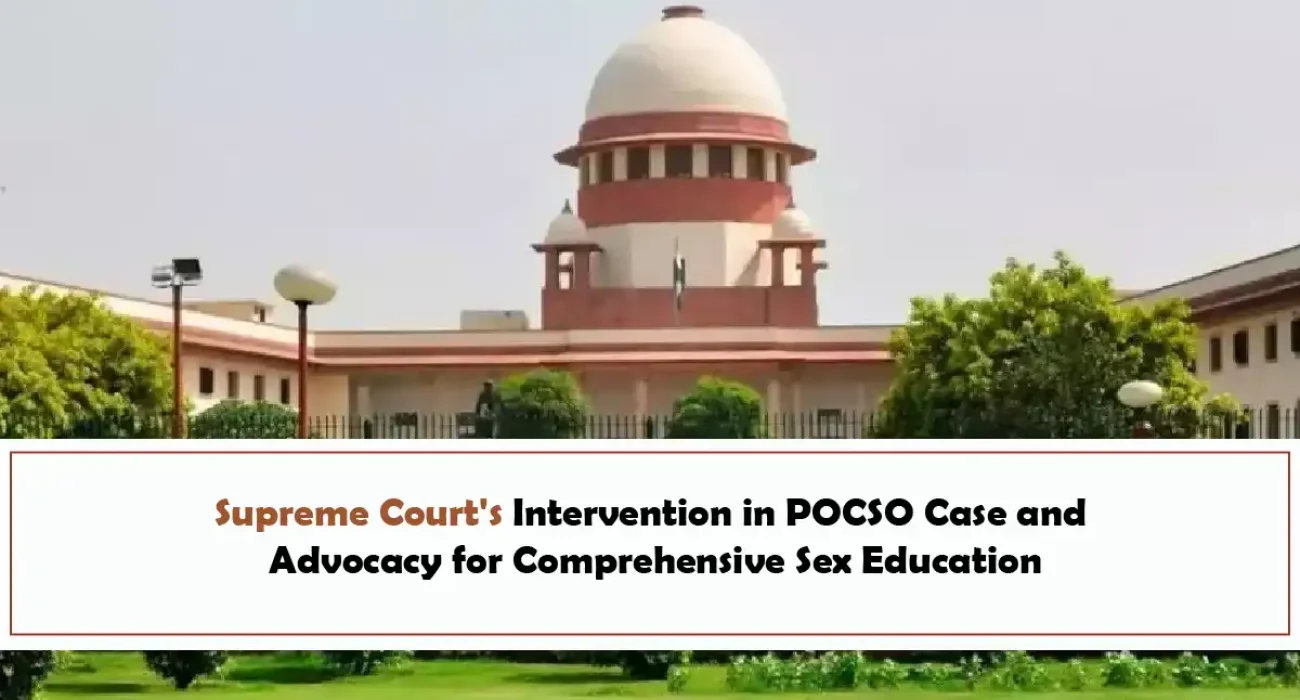

Table of Contents
ToggleIn 2018, a 14-year-old girl from rural West Bengal eloped with a 25-year-old man, leading to their marriage. The girl’s mother filed a police complaint, resulting in the man’s conviction under the Protection of Children from Sexual Offences (POCSO) Act and the Indian Penal Code (IPC). The Calcutta High Court later acquitted the man, suggesting that consensual adolescent relationships should be decriminalized under the POCSO Act. The Supreme Court took suo motu cognizance of the case, criticizing the High Court’s remarks and restoring the conviction.
The petitioner, represented by Senior Advocate HS Phoolka, argued that the High Court’s acquittal was based on unwarranted observations about adolescent sexuality, particularly the suggestion that adolescent girls should control their sexual urges. The petitioner contended that such remarks were not only inappropriate but also violated the victim’s rights.
The respondent, represented by Senior Advocate Huzefa Ahmadi on behalf of the State of West Bengal, highlighted the steps taken for the welfare of the victim, including her enrollment in the 10th standard and her child’s enrollment in a local Anganwadi center. The respondent emphasized the importance of considering the victim’s circumstances before deciding on sentencing.
The Supreme Court criticized the Calcutta High Court’s suggestion to decriminalize consensual adolescent relationships under the POCSO Act, stating that such acts constitute offenses regardless of consent. The Court emphasized the importance of rehabilitation for victims of offenses under the POCSO Act, noting that the victim in this case had been subjected to societal stigma and financial hardship.
The Supreme Court restored the conviction of the accused under the POCSO Act and the IPC. However, considering the victim’s situation, the Court refrained from sentencing the convict immediately, invoking its special powers under Article 142 of the Constitution. The Court directed the West Bengal Government to constitute a three-member expert committee, including a clinical psychologist and a social scientist, to assist the victim in making an informed decision about her future. The committee was tasked with submitting a detailed report by July 25, 2025.
The Court highlighted the need for comprehensive sexuality education to address misconceptions and promote healthy attitudes towards sexuality and relationships. It directed the Ministry of Women and Child Development to appoint a committee of experts to consider the suggestions of amici curiae regarding reforms in sex education policy and real-time tracking of POCSO cases. The committee was directed to submit a detailed report by July 25, 2025.
Credits: Adv. Deeksha Rai
IAW resources
Browse our help directory